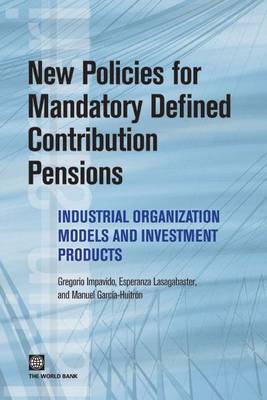Latin American Development Forum
1 total work
New Policies for Mandatory Defined Contribution Pensions
by Gregorio Impavido, Esperanza Lasagabaster, and Manuel Garcia-Huitron
Published 27 May 2010
Mandatory defined contribution pension markets are present in a growing number of countries around the world. But despite their popularity, policymakers continue to struggle with two key policy concerns. On the one hand, a number of design shortcomings encourages pension firms to charge high administrative fees. On the other hand, the global crisis that started in 2007 has reignited the debate on whether pension participants bear excessive investment risk. Both are valid policy concerns as their incidence can imply higher than expected levels of poverty among old age individuals. Both concerns have the same root problem---the limited capacity of individuals to choose what is best for them. This, in turn, stems from a combination of inadequate financial education, bounded rationality and the use of simplistic "rules of thumb" that produce systematic biases in the decision making process of individuals. While improving financial education is an obvious avenue to pursue, this book is more concerned with design features that can exploit these systematic biases to protect consumers from themselves.
New Policies for Mandatory Defined Contribution Pensions: Industrial Organization Models and Investment Products (i) discusses the main implications for the functioning of mandatory defined contribution pensions of consumers' inability to make rational choices; (ii) describes how jurisdictions have tried to address these problems through ad hoc policy interventions; and (iii) proposes new policy directions in the areas of industrial organisation models and investment products to address these concerns more effectively.
New Policies for Mandatory Defined Contribution Pensions: Industrial Organization Models and Investment Products (i) discusses the main implications for the functioning of mandatory defined contribution pensions of consumers' inability to make rational choices; (ii) describes how jurisdictions have tried to address these problems through ad hoc policy interventions; and (iii) proposes new policy directions in the areas of industrial organisation models and investment products to address these concerns more effectively.
